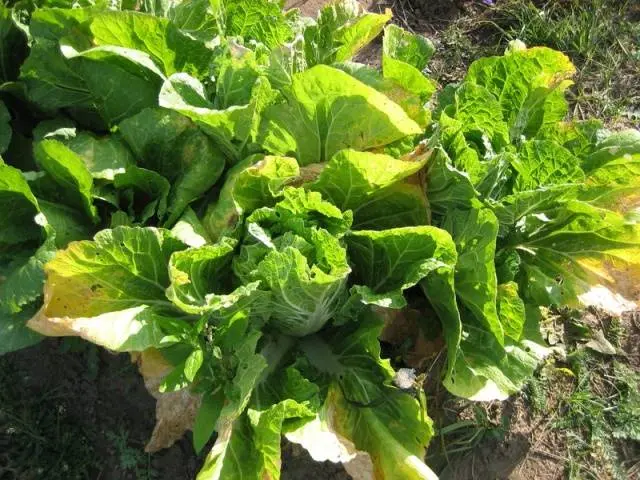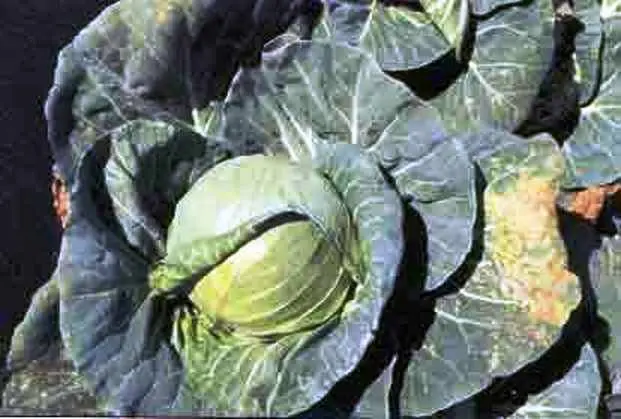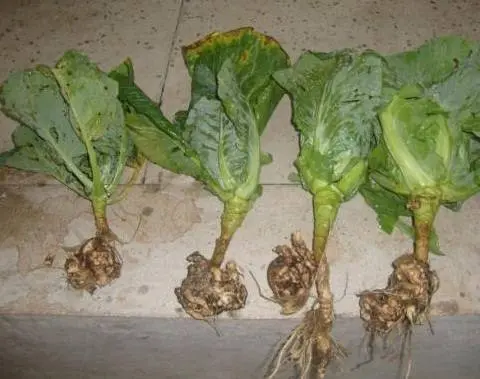Contents
Crispy cabbage is always held in high esteem by s in fresh, salted, pickled form. From this vegetable, you can cook not only the first and second courses, salads, but also pies, pies. Unfortunately, not all gardeners are engaged in the cultivation of cabbage. The reason is not the difficulties of agricultural technology, but the fact that pests and diseases attack cabbage during growth.
Novice gardeners often wonder why the lower leaves of cabbage may turn yellow. And not only after planting on the ridges, but also at the seedling stage. There are many reasons leading to yellowing of the lower leaves, we will try to talk about them and control measures.
Causes of yellowing leaves
Noticing yellow leaves on cabbage, you should not immediately resort to pesticides to kill pests or diseases.
More often, the lower leaves turn yellow, and then fall off due to an imbalance in nutrition:
- The lower leaves will turn yellow if there is not enough nitrogen in the soil. And cabbage needs it to build green mass. Timely feeding with urea or other nitrogen-containing fertilizers helps the plant recover and grow heads.
- Yellowing of cabbage leaves from below may be due to a lack of phosphorus. In this case, problems arise not only with the leaf plate, but also the growth of cabbage slows down. The solution to the problem is the use of nitrogen-phosphorus fertilizers.
- In cauliflower, like all its relatives, the leaves change color from below if there is not enough magnesium in the soil. You can determine the lack of this trace element by pale leaf blades, on which the veins remain green for a long time. If the soil is acidic, then fertilizing with mineral fertilizer will not give the desired result. You need to solve the problem before planting cabbage: lime the soil.
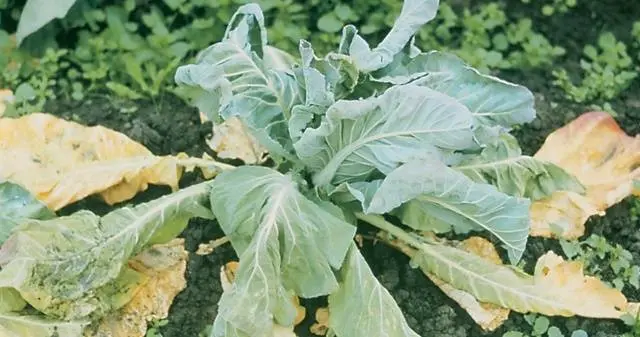
lack of care
Almost all types of cabbage, and especially cauliflower, prefer open sunny places. If there is not enough light, the lower leaves may turn yellow. This is a kind of signal that cannot be ignored.
Often, our readers write that cabbage grows in the sun, is well fed, and the leaves still turn yellow and fall off.
What could be the reason:
- Sharp changes in daily temperatures, especially in early spring, do not allow the plant to develop harmoniously.
- Untimely loosening of the soil leads to oxygen starvation, plants absorb microelements and nutrients worse.
- Lack of moisture in the soil or uneven watering.
What to do, even a novice gardener will understand. Strictly follow the agrotechnical rules associated with the care of cabbage: watering, fertilizing, loosening.
vermin
The activity of pests can lead to yellowing of the leaves. Aphids, cutworm caterpillars, cabbage butterflies, cabbage fly larvae and other lovers of succulent leaves like cabbage leaves. If the lower leaves have changed color, look under the leaf blade.
If you see pests, take action immediately. Sprinkle the plants with wood ash right to the head. You can also sprinkle red hot pepper around the stem. From caterpillars, spraying with valerian helps a lot.
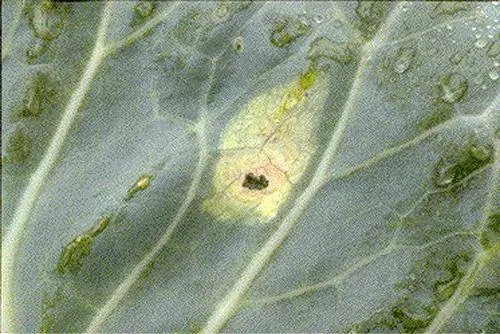
Infection is harder to fight
The above problems, compared with infectious wilting and yellowing of the leaves, are flowers, because you can quickly put cabbage in order. With regards to infections and diseases, in some cases you will even have to part with the plants.
- Fusarium leaf wilt is a fungal disease. The disease develops at the seedling stage. The leaves lose their elasticity, turn yellow, wither and eventually fall off. You can make sure that this is Fusarium by cutting off the stem – brown dots are visible on it. What to do with cabbage, can it be saved? Plants on which signs of a fungal disease are found are destroyed, and the soil is treated with copper sulphate (5 grams of the substance per ten liters of pure water).

- Peronosporosis also begins in seedlings. If you do not fight powdery mildew in a timely manner, the plant may die, because the lower leaves turn yellow and fall off first. This is an infection, so it is not always possible to protect neighboring plants. You can avoid the disease if you disinfect the seeds and soil with the same solution of copper sulfate. The procedure for processing plants and soil is repeated after planting seedlings on the street. So that the “medicine” does not immediately drain from the leaves, liquid soap is added to the solution.

- The third infectious disease also refers to fungal. This is a quila. You can recognize the disease by the growths and thickenings that appear on the roots. They “steal” nutrients; food does not get to the leaves and head of cabbage. Nothing can be done to save the plant. Moreover, the affected plant must be urgently removed and the ground disinfected. In the beds where cabbage keel is found, serious soil treatment is needed, first with ash, and in the fall after harvesting with copper sulphate.

Diseases of cabbage:
Conclusion
As you can see, cabbage leaves can turn yellow and fall for various reasons. Such summer “leaf fall” can be prevented if prevention is not forgotten, starting from the seed stage. Timely treatment with drugs such as Gamair or Alirin will help prevent the development of fungal diseases. The use of funds is also allowed during the period of tying the forks.










